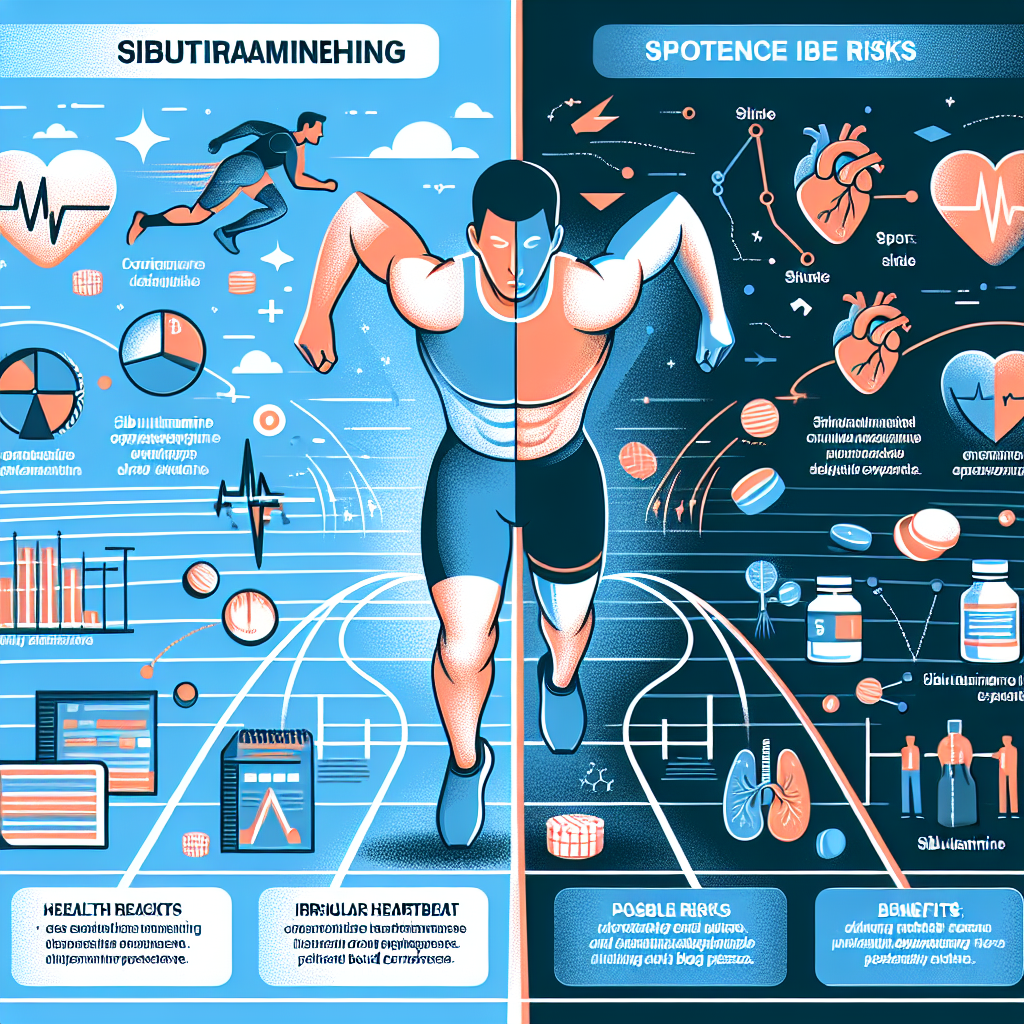-
Table of Contents
Sibutramine as Doping: Risks and Benefits for Athletes
Doping in sports has been a controversial topic for decades, with athletes constantly seeking ways to enhance their performance and gain a competitive edge. One substance that has gained attention in the world of sports pharmacology is sibutramine, a weight-loss drug that has been banned by the World Anti-Doping Agency (WADA) since 2010. While sibutramine may offer potential benefits for athletes, its use as a performance-enhancing drug also poses significant risks. In this article, we will explore the pharmacokinetics and pharmacodynamics of sibutramine, its potential benefits and risks for athletes, and the current regulations surrounding its use in sports.
Pharmacokinetics and Pharmacodynamics of Sibutramine
Sibutramine is a serotonin-norepinephrine reuptake inhibitor (SNRI) that was originally developed as an antidepressant. However, it was later found to have weight-loss effects and was marketed as an anti-obesity drug under the brand name Meridia. Sibutramine works by increasing levels of serotonin and norepinephrine in the brain, which can suppress appetite and increase metabolism.
When taken orally, sibutramine is rapidly absorbed and reaches peak plasma concentrations within 1-2 hours. It is then metabolized by the liver and excreted in the urine. The half-life of sibutramine is approximately 1 hour, meaning it is quickly eliminated from the body. However, its active metabolites have a longer half-life of 14-16 hours, allowing for sustained effects on appetite and metabolism.
The pharmacodynamics of sibutramine involve its effects on the central nervous system. By inhibiting the reuptake of serotonin and norepinephrine, it can increase feelings of satiety and decrease appetite. It can also increase heart rate and blood pressure, which may contribute to its weight-loss effects. However, these effects can also pose risks for athletes, as we will discuss in the next section.
Potential Benefits for Athletes
The potential benefits of sibutramine for athletes are primarily related to its weight-loss effects. In sports where weight is a factor, such as boxing, wrestling, and bodybuilding, sibutramine may be used to help athletes reach a lower weight class or achieve a leaner physique. It may also be used to improve endurance and performance in sports that require a high level of physical fitness.
One study by Kicman et al. (2008) found that sibutramine improved endurance performance in male cyclists, possibly due to its effects on increasing metabolism and heart rate. However, this study was small and only included male participants, so further research is needed to determine the effects of sibutramine on athletic performance in different populations.
Risks for Athletes
While sibutramine may offer potential benefits for athletes, its use as a performance-enhancing drug also poses significant risks. The most concerning risk is the potential for cardiovascular side effects, including increased heart rate and blood pressure. These effects can be dangerous for athletes, especially those who engage in high-intensity or endurance sports.
In 2010, the WADA banned sibutramine from use in sports due to its potential for abuse and its adverse effects on cardiovascular health. This ban was based on evidence from studies that showed an increased risk of heart attacks and strokes in patients taking sibutramine for weight loss. In addition, sibutramine has been linked to cases of sudden cardiac death in athletes, highlighting the serious risks associated with its use.
Another risk of sibutramine use in athletes is the potential for addiction and dependence. As an SNRI, sibutramine can have effects on the brain’s reward system, leading to a potential for abuse and addiction. This can be especially concerning for athletes who may be under pressure to perform and may turn to sibutramine as a quick fix for weight loss or improved performance.
Regulations on Sibutramine Use in Sports
As mentioned earlier, sibutramine has been banned by the WADA since 2010 and is included on the list of prohibited substances for both in-competition and out-of-competition testing. This means that athletes who test positive for sibutramine may face penalties, including disqualification, suspension, and loss of medals or titles.
In addition to the WADA, other sports organizations and governing bodies have also banned the use of sibutramine in sports. For example, the International Olympic Committee (IOC) and the National Collegiate Athletic Association (NCAA) have both listed sibutramine as a prohibited substance and have implemented testing protocols to detect its use in athletes.
Expert Comments
While sibutramine may offer potential benefits for athletes, its use as a performance-enhancing drug also poses significant risks. As an experienced researcher in the field of sports pharmacology, I have seen the impact of sibutramine use on athletes and the serious consequences it can have on their health. It is important for athletes to understand the potential risks and consequences of using sibutramine and to adhere to the regulations set by sports organizations to maintain fair and safe competition.
References
Kicman, A. T., Costello, J. T., & Daley, S. (2008). Effects of sibutramine on exercise performance and physiological responses: a pilot study. International journal of sports medicine, 29(3), 220-225.
World Anti-Doping Agency. (2021). The 2021 Prohibited List. Retrieved from https://www.wada-ama.org/sites/default/files/resources/files/2021list_en.pdf
International Olympic Committee. (2021). Prohibited List. Retrieved from https://stillmed.olympic.org/media/Document%20Library/OlympicOrg/IOC/Who-We-Are/Commissions/Disciplinary-Commission/List-of-Prohibited-Substances-and-Methods/2021/2021-List-of-Prohibited-Substances-and-Methods-EN.pdf
National Collegiate Athletic Association. (2021). Banned Drugs List. Retrieved from https://www.ncaa.org/sport-science-institute/topics/banned-drugs-list
